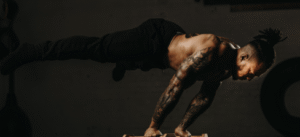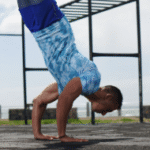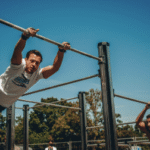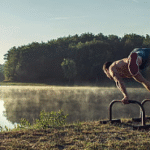How to Prepare for Your Initial Private Calisthenics Consultation
Why Preparation is Key for Your Initial Calisthenics Consultation
Investing time in preparing for your consultation maximizes its value:
Maximizes Time: A prepared client allows the coach to gather essential information efficiently, dedicating more time to discussing solutions rather than basic data collection.
Ensures All Needs Are Addressed: You won’t forget critical questions or details about your health and goals.
Facilitates Accurate Assessment: Providing a clear picture of your background helps the coach understand your starting point and design an appropriate assessment.
Builds Confidence: Being prepared makes you feel more confident and engaged in the conversation.
Aids Decision-Making: Helps you compare potential coaches effectively and choose the “perfect match” for your calisthenics aspirations.
—
Step-by-Step Guide: How to Prepare for Your Initial Private Calisthenics Consultation in Houston
Follow these detailed steps to ensure you’re fully ready for your first meeting with a calisthenics coach in Houston:
Step 1: Clarify Your Goals & Motivation (The “Why” Behind Your Journey)
This is the most important self-reflection:
What exactly do you want to achieve? Be specific. Do you aim for:
Foundational strength (e.g., first few push-ups/pull-ups)?
Mastering specific skills (e.g., a freestanding handstand, muscle-up, L-sit, planche progressions)?
Building significant lean muscle and overall functional strength?
Improving body composition (fat loss, increased definition)?
Enhancing flexibility, mobility, or body control?
What motivates you? Is it health, aesthetics, performance, overcoming a challenge, or a desire for self-mastery?
What are your long-term aspirations? Where do you see your calisthenics journey in 1-2 years?
Step 2: Document Your Health & Fitness History (The “What” You Bring to the Table)
Be thorough and honest about your background.
Medical Background:
Any chronic conditions (e.g., diabetes, asthma, hypertension)?
Past surgeries (when, what for, recovery details)?
Current medications (and their potential side effects on energy/performance)?
Are you currently under a doctor’s care for any condition? (Be prepared to discuss obtaining medical clearance if applicable).
Injury History:
Detail any past or current injuries (e.g., shoulder impingement, wrist pain, knee issues, lower back discomfort – common areas of concern in calisthenics).
When did the injury occur? How was it treated (e.g., physical therapy in Houston)? Are you still experiencing pain or limitations (describe intensity and triggers)?
Exercise Background:
What types of exercise have you done before (weightlifting, cardio, yoga, sports)?
What worked well for you? What didn’t? What did you enjoy/dislike?
How consistent have you been with exercise in the past year?
Lifestyle Factors:
Describe your typical work schedule (e.g., long hours downtown, travel – common in Houston).
Average hours of sleep per night.
General stress levels.
Basic overview of your typical diet (e.g., balanced, fast food heavy, vegetarian).
Step 3: Assess Your Current Physical Capabilities (The “Where You Are” Now)
Be realistic about your current strength and mobility.
Current Strength Levels: Be honest about what you can do. Can you do a full push-up (how many)? A pull-up (unassisted or assisted)? How deep can you squat? How long can you hold a plank?
Mobility Limitations: Note any stiffness or limited range of motion (e.g., can you raise your arms straight overhead without arching your back? Can you touch your toes comfortably?).
(Optional but Recommended): Record a Short Video: If you’re comfortable, record yourself performing a few basic bodyweight movements (e.g., a bodyweight squat, push-up, or basic plank) from a side and front view. This can provide valuable initial insights for the coach. For online consultations, this is often a required pre-assessment.
Step 4: Prepare Your Questions for the Coach (The “How” They Will Help You)
This is your opportunity to interview them. Have these questions ready:
About Their Qualifications & Experience:
“What calisthenics-specific certifications or training do you have (e.g., PCC, GymnasticBodies methodology)?”
“How long have you been coaching calisthenics, and do you have experience with clients with goals/limitations like mine?”
“Can you share any client success stories or a portfolio of before/after transformations, especially related to calisthenics skills?”
About Their Training Methodology & Philosophy:
“What is your coaching philosophy for calisthenics (e.g., safety-first, progressive overload, holistic approach, skill-based)?”
“How do you design personalized calisthenics programs, and what role does periodization play?”
“How do you provide form correction and feedback during sessions? (If online, how do you use video analysis?)”
“What is your approach to managing clients with existing injuries or physical limitations?” (Listen for mention of medical clearance and collaboration with medical professionals like physical therapists in Houston).
“How do you integrate mobility work, nutrition guidance, and recovery strategies into your calisthenics programs?”
About Logistics & Practicalities:
“Where do you typically conduct private sessions in Houston? (e.g., your studio, a specific park like Memorial Park, client’s home, online?)”
“What is your pricing structure (hourly, packages, monthly)? Are there any hidden fees or facility charges?”
“What is your typical availability and scheduling process?”
“What is your cancellation/rescheduling policy?”
“How do you track client progress?”
Step 5: Research the Coach/Studio (Pre-Vetting Continues)
Before the consultation, do some online vetting:
Check their website for client testimonials, their “About Us” page for trainer bios and philosophies.
Look at their social media (Instagram, YouTube) for examples of their coaching style, client interactions, and personal training.
See if they are associated with a reputable calisthenics studio in Houston (e.g., Calisthenics & Lifestyle Club Houston).
Step 6: Be Ready to Discuss Budget & Schedule
Have a clear idea of your comfortable financial investment for private training. Be upfront about this if asked.
Know your consistent availability for sessions (e.g., “Monday and Wednesday evenings after 6 PM”).
Step 7: Arrive Prepared (Mentally & Physically)
Punctuality: Arrive on time (or a few minutes early) for your consultation.
Honesty & Openness: Be completely transparent with your coach about your goals, history, and current state. This builds trust and ensures the most accurate plan.
Comfortable Attire: Wear comfortable athletic clothing, as the consultation might involve a brief movement assessment.
—
Conclusion: Empowering Your Choice in Houston
Preparing thoroughly for your initial private calisthenics consultation in Houston empowers you to take control of your fitness journey. By clarifying your needs, documenting your history, assessing your capabilities, and preparing intelligent questions, you’ll ensure a productive discussion. This diligent preparation is the foundation for selecting the perfect calisthenics coach who will safely and effectively guide you towards mastering your body and achieving your fitness aspirations.

How to Prepare for Your Initial Private Calisthenics Consultation
Route
Calisthenics Gym Houston Functional Bodyweight Training
Secondary phone: (346) 483-3195
Email: info@calisthenicsclubhouston.com
URL: https://calisthenicsclubhouston.com/
Monday 6:00 AM - 7:00 PM Tuesday 6:00 AM - 7:00 PM Wednesday 6:00 AM - 7:00 PM Thursday 6:00 AM - 7:00 PM Friday 12:00 PM - 6:30 PM Saturday 9:45 AM - 12:00 PM Sunday 3:00 PM - 5:00 PM





